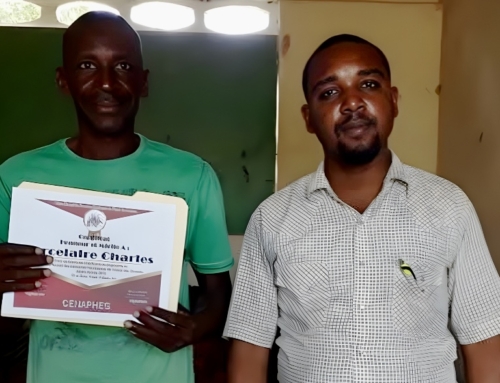Bad Legs
“I’m sorry, sir, that the only person who responded to your invitation to give themselves to serve the Lord in mission was the little crippled girl who could never do it.”
Preview in new tab(opens in a new tab)
The apology came after a service in my little rural church. It was about me. When I was five years old, polio had profoundly weakened me. Now 12 years old, using my crutches and braces, I had walked down the aisle to say, “Yes, I believe the Lord wants me to be a missionary someday.” Logically, it looked like an impossible dream, but the speaker looked the other gentleman in the eye and said, “Whom the Lord calls, He will use.” Those words could not be a truer description of my experience of disability in mission.
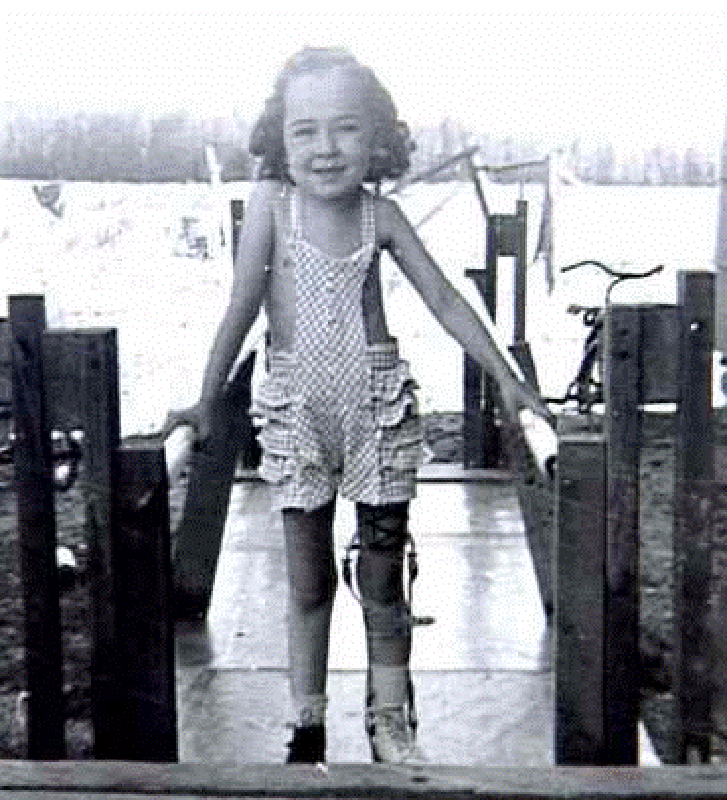
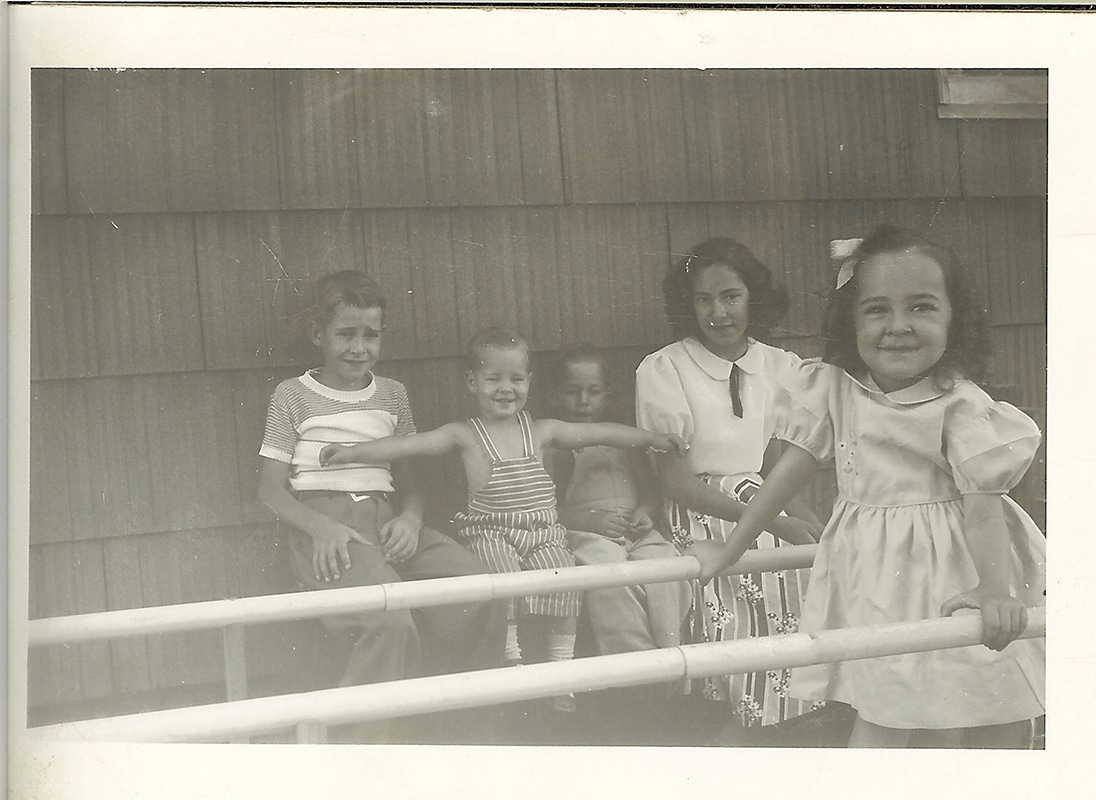
Eventually, the Lord opened the way for me to serve him in one of the most rugged places on earth – the eastern highlands of Papua, Indonesia. By then, although I no longer needed crutches or braces, my deep limp announced my weak legs to the near-pygmy-size people called Kimyal who live in those mountains.
When I first arrived among them, a handful of them knew the basics of the Gospel but did not have the Bible in their language. My assignment was to learn their language and culture and translate the Bible into Kimyal for them.
To learn this people’s hearts and language, I spent time with them. I went to the villages on Sundays to teach Bible stories to the children, or on other days just went to visit. Each village connected to the others by long steep mountain trails. I called them goat trails. They were narrow and sometimes along sheer cliffs where a misstep could send you over the edge. Trails always climbed or descended and often crossed crashing rivers by a high suspension bridge.
My legs could not walk the “goat trails,” and there was nothing wheeled to ride. So I rode in what I called my MTS, Mountain Transport System. It was two poles braced a little wider than me with a flattened netbag attached in such a way that a board in the bottom could act as a seat.
I sat there between the poles, and two to eight men, depending upon how steep or rugged the trail was, put the poles on their shoulders, and off we went. I paid the carriers, but soon saw that they didn’t do it just for the pay.
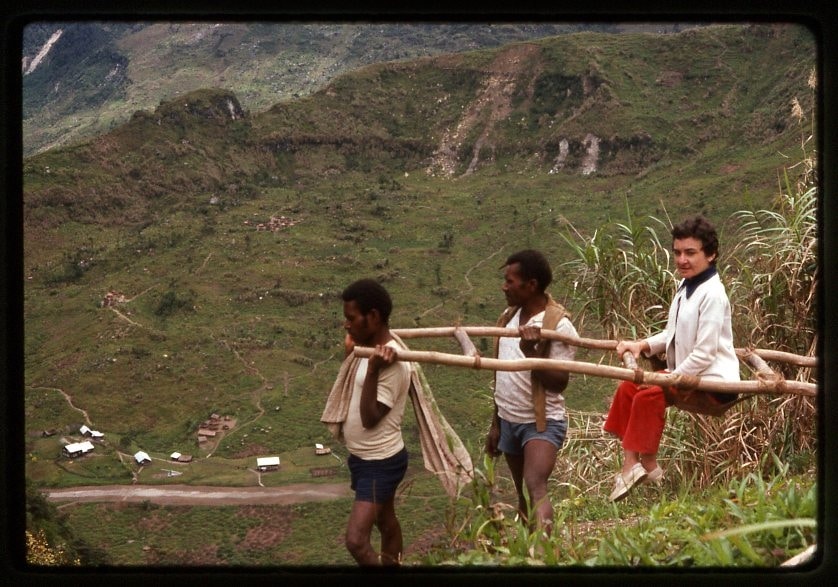 I was someone weaker than them who needed their help.
I was someone weaker than them who needed their help.
They took pride in carrying me – all four feet, seven inches of me.
One day a carrier said, “You and us – we’re small on the outside, but we’re BIG on the inside.”
I had been with the Kimyal people for many years when they named me Bad Legs. By then the Kimyal church was strong in their knowledge and love for the Lord. I asked Pastor Siud, “I know I have bad legs, but what is the real reason for my name?”
Siud said, “Your bad legs are important to us. People with good legs have come here for a short time and had to leave. And we know about bad legs. Our own people with bad legs can’t get out of this valley. But God brought you, even with your weak legs, all the way from Amerika to here and has kept you here so you could give us His Word. He did that because He loves us so much.”
My bad legs were a symbol to the Kimyal people of God’s great love for them.
Severe post-polio syndrome forced me to leave my loved Kimyal people before I finished the New Testament, but some Kimyal men who left the mountains for education formed a committee to continue the translation, and God provided another former missionary to guide them in finishing it.
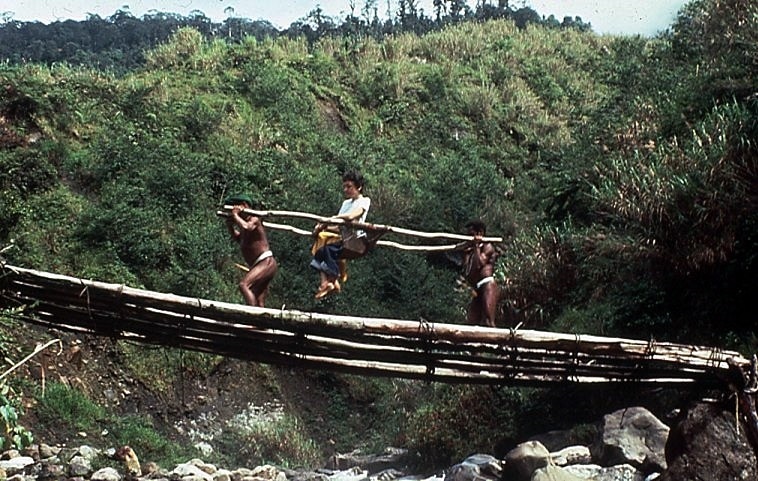
This isn’t the end of the story, though.
As they have done for generations, sitting around the fires in their huts, older Kimyal people pass down their history to the next generations through stories. Those stories now include tales about Bad Legs Woman. Tales from a time before the hearers were born.
Some young people of the new generations leave the mountains to live, go to school, or work, and have embraced internet technology. They love to connect with me on social media or to post to friends about me, like one who said,
“Praise God. The people … happily carried the missionary named Elinor Young as she needed to go from church to church and teach the children. …I must do as she did and carry the gospel of Christ to all.”
Or one who messaged me,
“Hello, Mom. We Kimyal people lived in darkness in our place among the peaks of the mountains. But you, Mom, you brought the words of the source of light. For that we greet you with love. God bless you.”
Or the one who said,
“Thank you for your work. Even though your legs are bad God could count on you to work for Him. Thank you, and God bless you.”
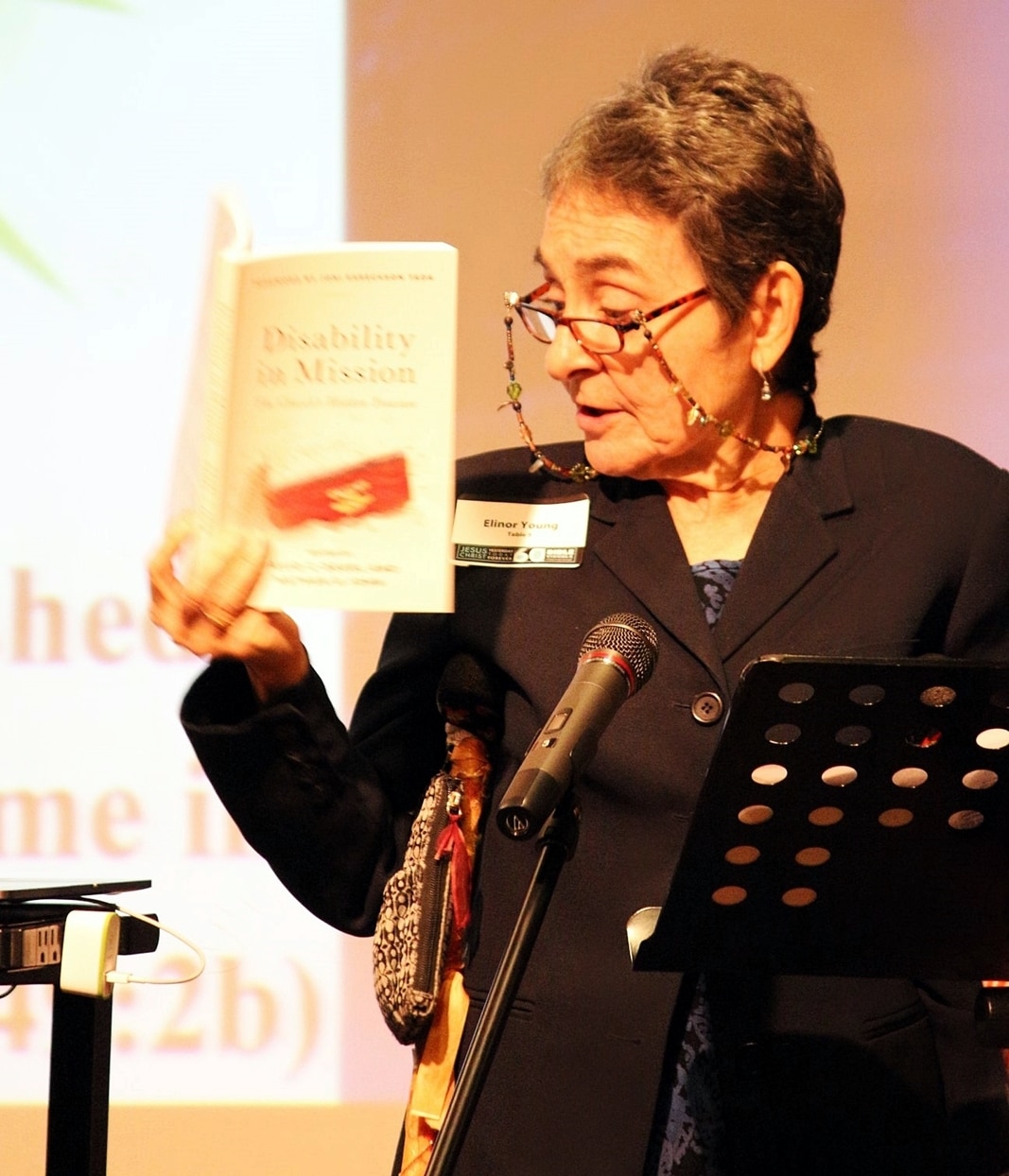
They understand how difficult it was for me to live and work there and they know I did it because I loved God and wanted them to know Him too. That has an impact even now.
I long to see that impact multiplied by others. Mission agencies and church committees – don’t miss the blessing!
God’s power shows up loudly in the disabled.
Use them! Send them! Buy the book, Disability in Mission: God’s Hidden Treasure. Read it. absorb it. Open doors of service to all of God’s people, including the disabled. For the sake of God’s Kingdom, we must.
Written By—Elinor Young
A former missionary linguist, Elinor is actively retired. She writes, mentors future missionaries, and edits World Team’s publication for children, Great Commission Kids.
Edited by David C. Deuel & Nathan G. John
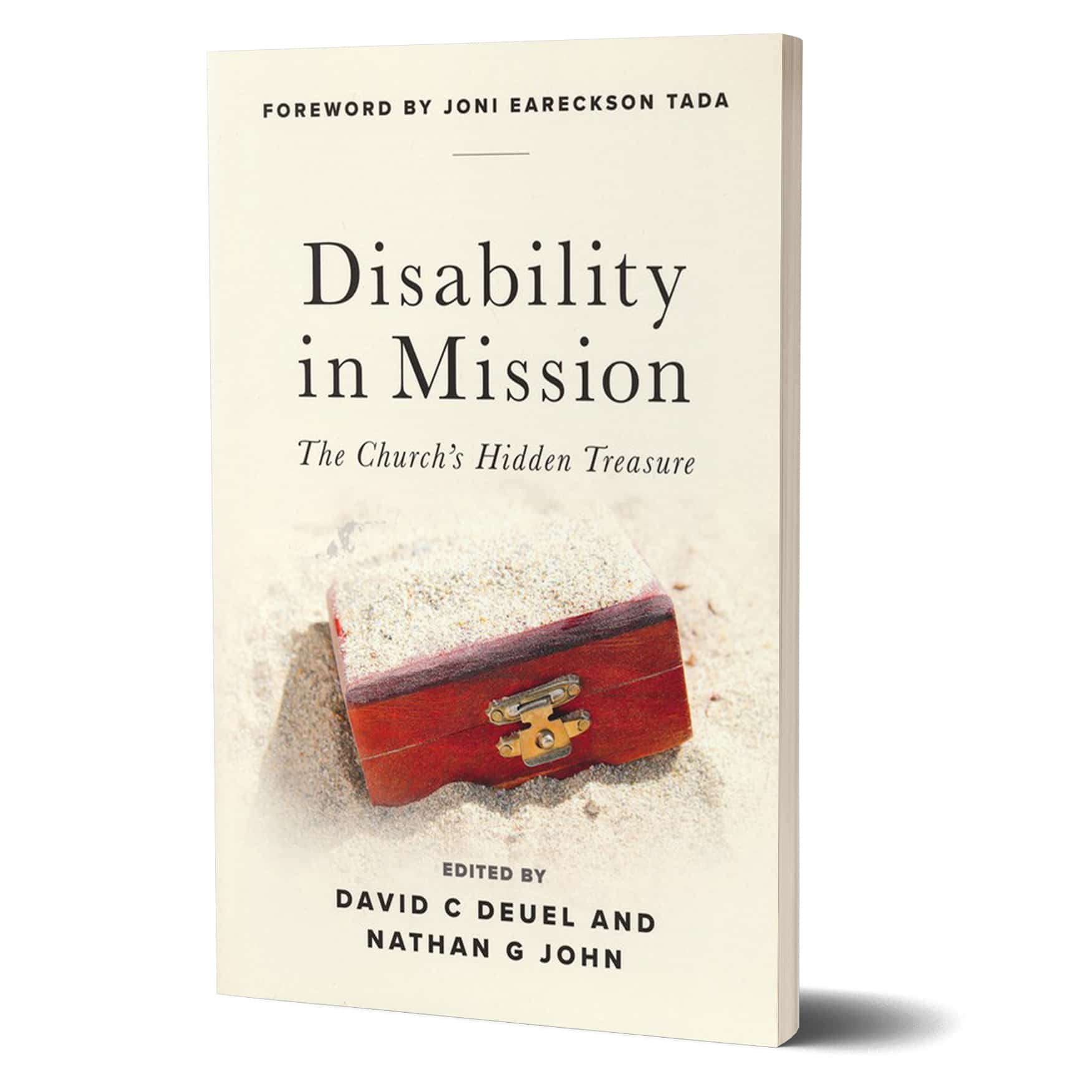
Disability in Mission
Disability in Mission: The Church’s Hidden Treasure outlines a radical change in approaches to missiology, missions, and praxis for the twenty-first-century global cultural context. It explores a pattern whereby God works powerfully in missions through disability and not in spite of it.
Pray with Us
Heavenly Father, we come before you requesting a miracle. Lord of disability, please change our hearts. We confess that we doubt or dismiss people with disabilities. But worse, we pridefully make them objects of pity when instead we should see your calling and giftedness in their lives.
Please use this book’s testimonies of your sufficient grace. May the many missionary lives lived faithfully with disability remind us that called and gifted people with disabilities are platforms for your enablement, showcases for your glory. Remind us that disability is your stage for shocking a watchful world.
We believe that you can and will heal all disabilities. But on your disability stage, display your power by changing our hearts.


